
Epcoritamab-bysp showed a 69% objective response rate and 62% complete response rate in older patients with large B-cell lymphoma who were ineligible for anthracycline-based therapy.

Epcoritamab-bysp showed a 69% objective response rate and 62% complete response rate in older patients with large B-cell lymphoma who were ineligible for anthracycline-based therapy.
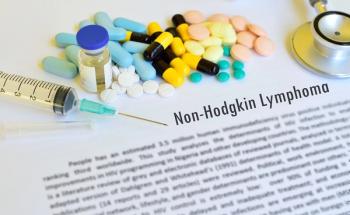
This pair of posters presented at the 66th American Society of Hematology Annual Meeting & Exposition provides updates on epcoritamab, currently being investigated in the Epcore NHL-1 trial.
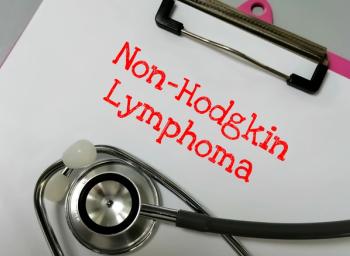
A new analysis of real-world data show that just as in solid tumors, higher tumor mutational burden (TMB) and PD-L1 expression in blood cancers are linked to less-optimistic prognoses.
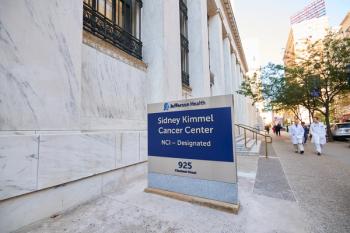

Capivasertib, in combination with venetoclax, produced promising responses in preclinical models of diffuse large B-cell lymphoma (DLBCL).
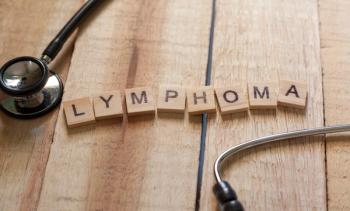
A 3-year follow-up of patients with refractory/relapsed indolent non-Hodgkin (NHL) treated with a combination of magrolimab and rituximab showed no new treatment-emergent adverse events, suggesting long-term safety. The treatment also confirmed magrolimab penetration into the tumor.

A new study demonstrates that the combination of lenalidomide (Revlimid) and obinutuzumab (Gazyva) is effective and well-tolerated in treating relapsed indolent non-Hodgkin lymphoma (NHL).
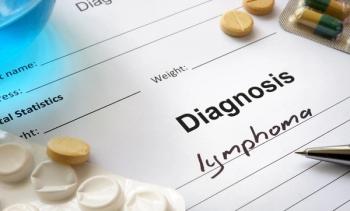
Danish patients who were diagnosed with certain lymphomas and other B-cell malignancies demonstrated increased antimicrobial use for at least a decade before their diagnosis.
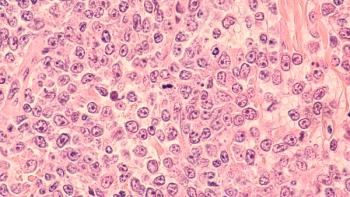
Recombinant Hirudin (rH) inhibited the polarization of M2-type macrophages and protease-activated receptor-1 (PAR-1) in diffuse large B-cell lymphoma (DLBCL).
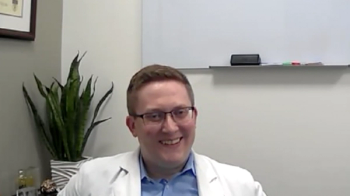
Jason Romancik, MD, a board-certified hematologist at Emory Winship Cancer Institute, discusses the current treatment landscape in aggressive lymphoma and drivers of high care costs.
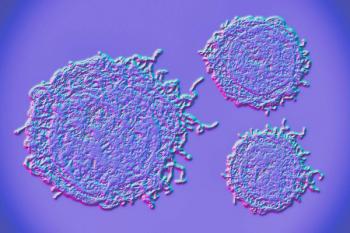
Improvements in multiplex immunofluorescence and spatial analysis have enabled a better understanding of the ways classical Hodgkin lymphoma evades the immune system.
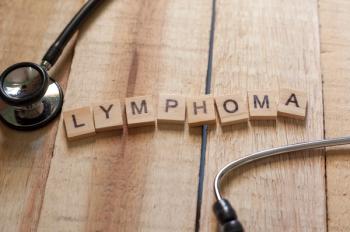
The phase 3 inMIND trial evaluating tafasitamab in combination with lenalidomide and rituximab in relapsed or refractory follicular lymphoma showed promising progression-free survival findings, according to topline results.

CAR T-cell therapy results in a high incidence of cytokine release syndrome, but it is manageable in most cases.
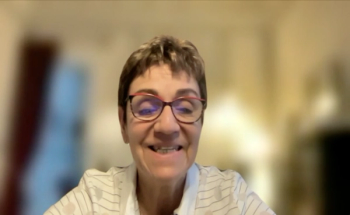
In part 1 of our interview with Anna Sureda, MD, PhD, president of the European Group for Blood and Marrow Transplantation, she summarized the current treatment landscape for relapsed/refractory diffuse large B-cell lymphoma (R/R DLBCL) and follicular lymphoma (FL).

Better reporting is needed to create better guidelines for tracking infection risk in patients with relapsed or refractory non-Hodgkin lymphoma or multiple myeloma, investigators concluded.

Investigators wanted to know how well the NFlymSI-18 assessment was able to assess patient-reported outcomes in people with indolent B-cell non-Hodgkin lymphoma (NHL).
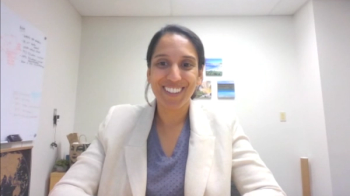
“It's nice to have another option that we can discuss with patients,” said Yasmin H. Karimi, MD, University of Michigan, about epcoritamab’s label expansion for difficult-to-treat relapsed/refractory (R/R) follicular lymphoma.
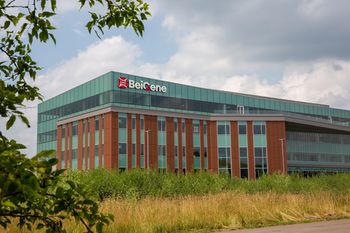
New Jersey Governor Phil Murphy joined BeiGene CEO John Oyler and about 300 guests to open the facility, located in Hopewell, New Jersey. A version of this article appeared in the August issue of Evidence-Based Oncology.
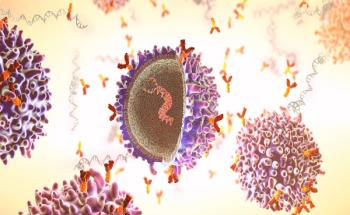
The social determinants of health (SDOH) that need to be tackled most urgently when it comes to which patients with large B-cell lymphoma (LBCL) do and do not receive chimeric antigen receptor T-cell therapy (CAR T) are age, sex, income, and race/ethnicity.
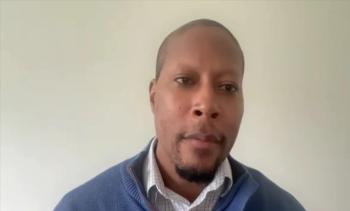
We recently spoke with Tycel Phillips, MD, associate professor, Division of Lymphoma, Department of Hematology & Hematopoietic Cell Transplantation, City of Hope, about his team’s interim analysis of their dose-escalation study of glofitamab against relapsed/refractory B-cell non-Hodgkin lymphoma.
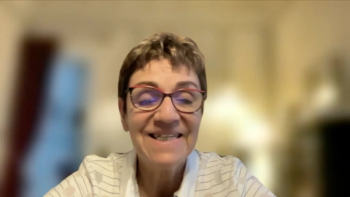
Anna Sureda, MD, PhD, of the Catalan Institute of Oncology, discusses the evolving treatment landscape for patients with relapsed/refractory diffuse large B-cell lymphoma (DLBCL) or follicular lymphoma.

A case study describes the disparate factors that played into the chemotherapy and other treatment decisions made by a team in Japan when addressing their patient’s primary mediastinal large B-cell lymphoma (PMBCL).

In this new analysis, investigators review the late adverse events associated with anti-CD19 chimeric antigen receptor (CAR) T-cell therapy for relapsed/refractory B-cell non-Hodgkin lymphoma.
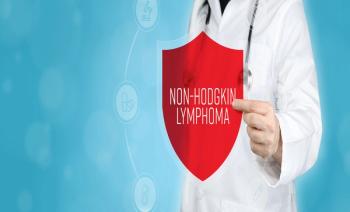
This meta-analysis study will estimate the global and regional burden of HIV-associated non-Hodgkin lymphoma to aid the development of prevention and control strategies.
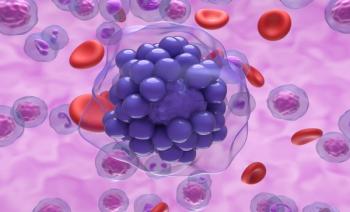
The 5 agents in ViPOR—including venetoclax and lenalidomide—worked better together in a phase 1b/2 trial than they previously have, individually, in treating patients with certain diffuse large B-cell lymphoma (DLBCL) subtypes.

259 Prospect Plains Rd, Bldg H
Cranbury, NJ 08512
© 2025 MJH Life Sciences®
All rights reserved.
